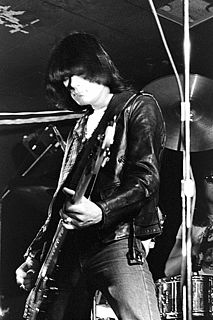A Quote by John Irving
He had in abundance youth’s most dangerous qualities: optimism and relentlessness. He would risk everything he had to fly the plane that could carry the bomb within him.
Related Quotes
There was only one catch and that was Catch22, which specified that a concern for one's safety in the face of dangers that were real and immediate was the process of a rational mind. Orr was crazy and could be grounded. All he had to do was ask, and as soon as he did, he would no longer be crazy and would have to fly more missions. Orr would be crazy to fly more missions and sane if he didn't, but if he was sane he had to fly them. If he flew them he was crazy and didn't have to; but if he didn't want to he was sane and had to.
How did it happen that now he could see everything so clearly. Something had given him leave to live in the present. Not once in his entire life had he come to rest in the quiet center of himself but had forever cast himself from some dark past he could not remember to a future that did not exist. Not once had he been present for his life. So his life had passed like a dream. Is it possible for people to miss their lives the way one can miss a plane?
The most dangerous thing Iraq could have ever had was a nuclear weapon. The nuclear weapon Iraq was trying to build was not deliverable by bomb or ballistic missile. It was a large, bulky device that they hoped to bury and set off to let the world know they had a nuclear weapon. They never achieved that.
My real problem was certainly decisions I made, and the optimism that I had in making them. Y'know, I mean, I lived within this kind of nimbus of optimism, that, no matter what I encountered, I would always overcome it. Well, optimism can be your worst enemy as well as your best friend, but the other side of this is, that, y'know, expenses grow. But our incomes have not.
China was the most optimistic place I'd ever been. Everybody I met was pretty much convinced that their children would have it better than their parents had had it. It was like being in America in the 1950's, with this deep optimism about the future because everything was getting better, and that fascinated me.
We are all hostages of time. We each have the same number of minutes and hours to live within a day, yet to me it didn't feel equally doled out. My illness brought me such an abundance of time that time was nearly all I had. My friends had so little time that I often wished I could give them what time I could not use. It was perplexing how in losing health I had gained something so coveted but to so little purpose.
Unpleasant, even dangerous, qualities can be found in every nation and every individual: it is cruel to demand that the Jew be an exception. In him, these qualities may even be dangerous and revolting to an unusual degree; and perhaps the young stock-exchange Jew is altogether the most disgusting invention of mankind.
Her first reaction was one of hope, because his eyes were open and shining with a radiant light she had never seen there before. She prayed to God to give him at least a moment so that he would not go without knowing how much she had love him despite all their doubts, and she felt an irresistible longing to begin life with him over again so that they could say what they had left unsaid and do everything right that they had done badly in the past. But she had to give in to the intransigence of death. (Love in the Time of Cholera)
It was like they waited to tell each other things that had never been told before. What she had to say was terrible and afraid. But what he would tell her was so true that it would make everything all right. Maybe it was a thing that could not be spoken with words or writing. Maybe he would have to let her understand this in a different way. That was the feeling she had with him.
The Secretary, working in the Dismal Swamp betimes next morning, was informed that a youth waited in the hall who gave the name of Sloppy. The footman who communicated this intelligence made a decent pause before uttering the name, to express that it was forced on his reluctance by the youth in question, and that if the youth had had the good sense and good taste to inherit some other name it would have spared the feelings of him the bearer.
Strangely, what pierced his heart and mind most sharply was not the memory of her lips under his at the ball, but the way she had leaned into his neck, as if she trusted him utterly. He would have given everything he had in the world and everything he would ever have, just to lie beside her in the narrow infirmary bed and hold her while she slept. Pulling away from her had been like pulling his own skin off, but he'd had to do it.






































